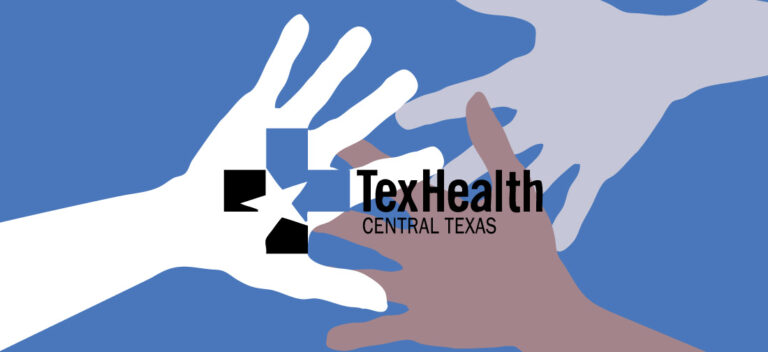Are Healthcare Costs Tax Deductible?
Medical debt is a serious threat to your finances and a leading cause of bankruptcy. As many as 40% of U.S. adults, or about 100 million people, are currently in debt because of medical or dental bills. So, if you have high healthcare costs, it makes sense to ask, “Are healthcare costs tax deductible?”
If you’re wondering if healthcare costs are tax deductible, the answer is mostly “yes” but also “it depends.”
- Your total itemized deductions must exceed the standard deduction amount for your filing status.
- Tax deductible medical and dental expenses must be more than 7.5% of your Adjusted Gross Income (AGI).
- You must use IRS Schedule A to itemize your deductions. You can’t take the standard deduction if you itemize, so you want to make sure your itemized amounts would be higher than the standard deduction, which has increased in recent years.
But before we get into more details on if healthcare costs are tax deductible, here’s some important information and terms you should know.
Important Terms about Healthcare Expenses
Since the best way to get out of medical debt is to pay your bills and/or not accrue debt, finding out if your family’s healthcare costs are tax deductible is a great mission. “About 44% of Americans who have medical debt don’t know they can deduct healthcare expenses from their taxes,” according to LendingTree. By deducting some of your and your family’s healthcare costs, you may be able to save money on taxes.
Medical Expenses
Medical expenses are defined by the IRS as the costs of diagnosis, cure, mitigation, treatment, or prevention of disease, to affect any part or function of the body. These expenses include payments for services rendered by licensed physicians, surgeons, dentists, and other medical practitioners to alleviate or prevent physical or mental disability or illness. They include the costs of equipment, supplies, diagnostic devices, and part of your transportation expenses incurred to receive care. But they do not include the money that your insurance or someone else pays on your behalf.
Some medical and dental expenses are simply not covered by insurance at all, or they are covered through supplemental insurance plans. However, you may still have additional medical expenses that are eligible to be deducted on your taxes.
Many healthcare expenses are not covered by an ordinary health insurance plan you get at work or pay for yourself. For example, in Texas, adult vision care and dental care are not covered by primary health insurance plans, including those available through the Affordable Care Act (aka, Obamacare or ACA Health Insurance Marketplace).
Here is a partial list of medical costs that, by law, must be covered by health insurance:
- Disease or disorder diagnoses
- Medically necessary treatments
- Preventative treatments and appointments
- Disease and illness mitigation (reduce severity or seriousness)
- Medical equipment, supplies, and diagnostic services ordered or prescribed by your medical provider
The expenses listed here should be seen as medical categories (in terms of your taxes) and are tax deductible—but not 100%.
Tax Deduction for Healthcare Costs
If you have healthcare expenses that are not covered by insurance, you may be able to deduct them from your taxes if you itemize and your qualified expenses exceed 7.5% of your adjusted gross income.
Which expenses are tax deductible—as in which services or products—can also change annually. For example, the IRS made COVID-19 home test kits and personal protective equipment (PPE) deductible for 2021.
Adjusted Gross Income
Adjusted Gross Income (AGI) is your total income minus adjustments such as retirement account contributions or student loan interest. These adjustments lower the amount you owe. So if your paycheck says you earned $1,000, that’s your gross income. Your AGI is the number you see before Uncle Sam takes his cut.
According to H&R Block, “AGI is the starting point for calculating your taxes and determining your eligibility for certain tax credits and deductions that you can use to help you lower your overall tax bill.”
Gross income — not to be confused with AGI — includes monies received from all sources. This includes rent collected as income on property you own and the interest you get on your savings accounts. It also includes payouts you receive from some retirement accounts, alimony, and other benefits you may receive from your financial portfolio.
Unreimbursed Medical Expenses
When you file your tax returns, you should include deductions for qualified medical expenses that were not covered by insurance. Officially, they’re known as unreimbursed medical expenses.
One of the last things a taxpayer does on their tax returns is calculate how much money they owe (or get back!) from the government. So, to determine what portion of your healthcare costs are deductible, you or your accountant must first determine your AGI.
Medical Expenses That Are Tax Deductible
There’s a very long list of medical expenses you can potentially deduct from your taxes. Fortunately, there’s an easy way to find out what’s on the list. Just go to IRS Publication 502 (we can’t recommend enough bookmarking this link as you prepare your tax returns).
And remember, if you pay for one or more of these expenses without a full or partial contribution (or a discount) from your health insurance, it does not necessarily mean it was an unreimbursed expense. Oftentimes, it can mean you were required to hit a specific dollar amount before your health insurance kicked in its portion of payment.
Tax Deductible Medical Expenses
This partial list is from IRS Publication 502:
- Acupuncture
- Drug and alcohol addiction treatment
- Transportation to a hospital by ambulance
- Artificial teeth
- Bandages
- Birth control pills and devices
- Diagnostic body scans
- Books and literature written in Braille
- Post-pregnancy breast pumps
- Non-cosmetic breast reduction surgery (as in the case of cancer treatment)
- Chiropractor
- Contact lenses
- Crutches
- Eyeglasses, eye surgery, and contact lenses
- Guide dogs and service animals
- Home care services
Non-deductible Medical Expenses
Healthcare expenses are deemed tax deductible when the service, medication, or device is necessary for alleviating or preventing physical and mental illnesses. Unfortunately, the government has a long list of devices, services, and supplements that are not considered necessary for general health. These are therefore not deductible.
These include examples such as:
- Vitamins
- Spas and gym memberships
- Devices like heating pads and ice packs
- Alternative therapies
- Cosmetic procedures
So let’s get back to the original question: Are healthcare costs tax deductible? The answer is — some of them! Here is the formula for determining which portions of your medical and dental bills you can and cannot deduct.
Formula for Deducting Healthcare Costs from Your Taxes
For example, suppose your family’s AGI is $75,000. That means that any funds you spent on qualified medical expenses, starting after $5,625, can potentially be deducted. How did we come up with $5,625? When you have an AGI of $75,000, 7.5% of that comes out to $5,625. So you write that amount on the deduction line. You just have to make sure you have enough deductions to itemize them on your taxes. If the standard deduction is higher than your particular deductions, then you come out ahead taking the standard deduction and not itemizing.
There are lots of places online to find out how to fill out your tax return forms and to use electronic tax programs, or you can hire an accountant. Just be sure you save all of your receipts. No, really, save all of your medical and dental expense receipts. Your tax-preparer — even if it’s you — will need them if it turns out you can write off your excess medical expenses.
Other Ways to Deduct Health Expenses from Your Taxes
Using a Health Savings Account (HSA) with a high-deductible individual or group health insurance plan is another way to save money on medical expenses by making them tax-free. Money you save in an HSA is tax-deductible, and when you take it out to spend on qualified medical expenses, you also don’t have to pay taxes on it. Thus, your out-of-pocket healthcare expenses are tax-free, saving the percentage you would have paid on income taxes. See our HSA blog article for more information on this topic.
Need More Information on Health Coverage and Health Insurance?
If so, check out our book Decoding Health Insurance and the Alternatives: Options, Issues, and Tips for Saving Money for an incredibly comprehensive, easy-to-read guide to health insurance, related topics, and how to save money. It can help you untangle the messy healthcare system that drives us all crazy.
This is not to be taken as tax advice. Please consult an accountant, tax lawyer, or the IRS for issues, questions, and details.






